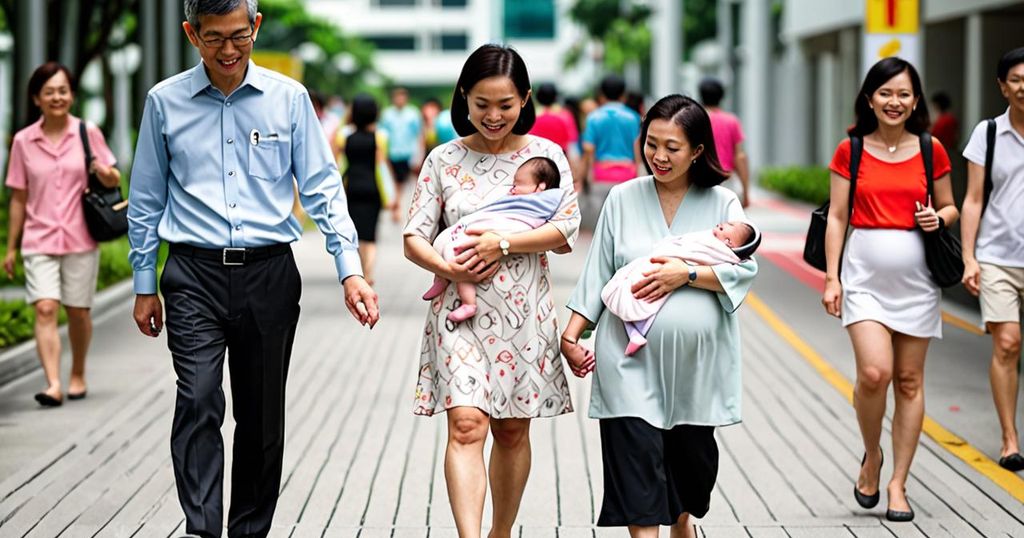Singapore is currently encountering unparalleled challenges as its resident total fertility rate (TFR) has fallen below 1 for the first time in history. Minister in the Prime Minister’s Office, Indranee Rajah, conveyed the disquieting news to Parliament, disclosing a preliminary estimate of 0.97 for the TFR in 2023, representing a notable decline from 1.04 in 2022 and 1.12 in 2021.
Several factors have contributed to this decrease, including the repercussions of the Covid-19 pandemic on couples’ intentions to marry and begin families. In response, the Singaporean government has implemented measures to bolster marriage and parenthood, recognizing the serious implications of the diminishing birth rate for the nation’s future.
The low birth rate positions Singapore among the countries with the lowest birth rates globally, with countries like South Korea leading the list with a TFR of 0.72 in 2023. Declining fertility rates are not exclusive to Singapore, as numerous developed nations are undergoing a shift in priorities among younger generations who may not consider marriage and parenthood as essential life goals.
The consequences of this trend are extensive, with economic concerns arising from a contracting workforce and a deceleration in growth. Minister Rajah emphasized the necessity to sustain dynamism, entice global businesses, and create opportunities for the next generation in the face of these challenges. However, she also noted that young Singaporeans still aspire to settle down and have children.
In light of these challenges, the government has taken steps to address the decline in birth rates, such as introducing elective egg freezing for non-medical purposes, an initiative that has seen approximately 200 women undergo the procedure since its introduction in June 2023.
Additionally, the implementation of additional paid paternity leave and the exploration of increased paid parental leave are part of efforts to support working parents. The Ministry of Manpower is developing new Tripartite Guidelines on Flexible Work Arrangement Requests to provide sustainable ways for parents to balance work and family commitments.
One local company, Hegen, has been highlighted for its family-friendly policies, offering flexible working arrangements and additional leave benefits for employees, resulting in improved retention, heightened satisfaction, and increased productivity among its staff.
The government also emphasized the necessity for a diverse foreign workforce to complement the local workforce in sustaining economic growth. Immigration policies have been geared towards addressing the nation’s future population needs, including granting new citizenships and permanent residency to individuals who contribute to sectors like healthcare.
The challenges posed by Singapore’s declining birth rate are significant, and as such, the government is committed to supporting Singaporeans in starting and raising families. The nation’s immigration policy will continue to strike a balance that moderates the impact of demographic trends on the size and age profile of the citizen population.
The declining birth rate in Singapore serves as a reminder of the complex challenges faced by modern societies. Amidst these challenges, the government’s proactive approach aims to ensure the long-term sustainability and prosperity of the nation.

Leave a Reply